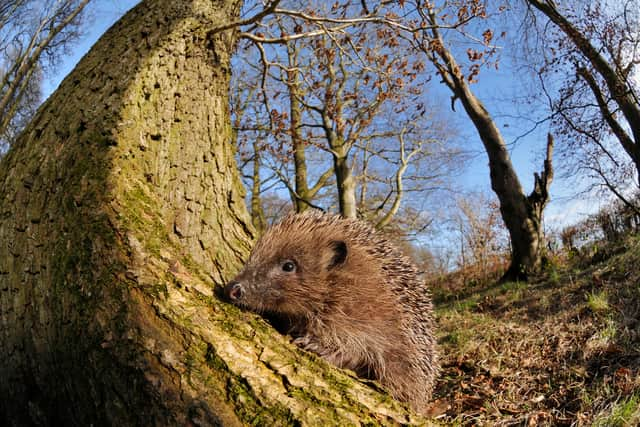UK 'mini heatwave': warm days ahead good news for hedgehogs and dormice preparing for hibernation
and live on Freeview channel 276
Warm days ahead mean good news for wildlife stocking up their larders for hibernation - with the balmy weather set to boost the berry season and keep bugs active.
Much of the UK is set to experience a 'mini heatwave' this weekend, with temperatures set to peak at 26 degrees in parts of South England and Wales. The Woodland Trust's Nature Calendar team say while this is much warmer than usual for this time of year, a short warm spell right now may not be all bad.
Advertisement
Hide AdAdvertisement
Hide AdOctober is an important time for the likes of hedgehogs, whose populations are widely known to be dwindling, as they shuffle and snuffle about feasting on food ahead of hibernation. Dr Kate Lewthwaite, who heads up the Trust's Citizen’s Science Team, said the warmth may boost the amount of food around for many of the little creatures that depend on it.


"Whilst it is clear that our seasons are changing due to climate change, with earlier springs and later autumns, the pretty damp conditions we have been getting - plus this unusual warm spell to come - may not be a bad thing," she said.
Dr Lewthwaite added that it looked to be just a short stretch of above-average temperatures, "so not long enough to confuse plants and animals". “Rather more positively, it may give a little bit more time for those animals that are set to hibernate like hedgehogs to find their prey."
Hedgehogs feast on worms, beetles and other insects, all of which will remain active for longer in the milder weather. Meanwhile, dormice can stock up on more berries and nuts. “Of course, if this sort of weather pattern was hitting us in December it would be much worse news, with animals coming back out of hibernation prematurely," she said.
Advertisement
Hide AdAdvertisement
Hide AdThe Woodland Trust’s Nature's Calendar project tracks the effects of weather and climate change on wildlife across the UK, and has data going back 300 years. The project has recorded leaf tinting - one of the first signs of autumn - has started for the UK's silver birch, rowan, oak, and beech trees. There were early signs of a good crop of conkers too, possibly linked to the early September warm spell.
Dr Lewthwaite added that it will take a little time to see a true reflection of early autumn since that needs more records to come in. “We recommend people to make the most of this warmer weather and get out and about to enjoy the early autumn signs in our woods. If you’re have a particular eye for spotting signs of nature’s changing seasons, we are always on the lookout for more volunteers.”
Comment Guidelines
National World encourages reader discussion on our stories. User feedback, insights and back-and-forth exchanges add a rich layer of context to reporting. Please review our Community Guidelines before commenting.
